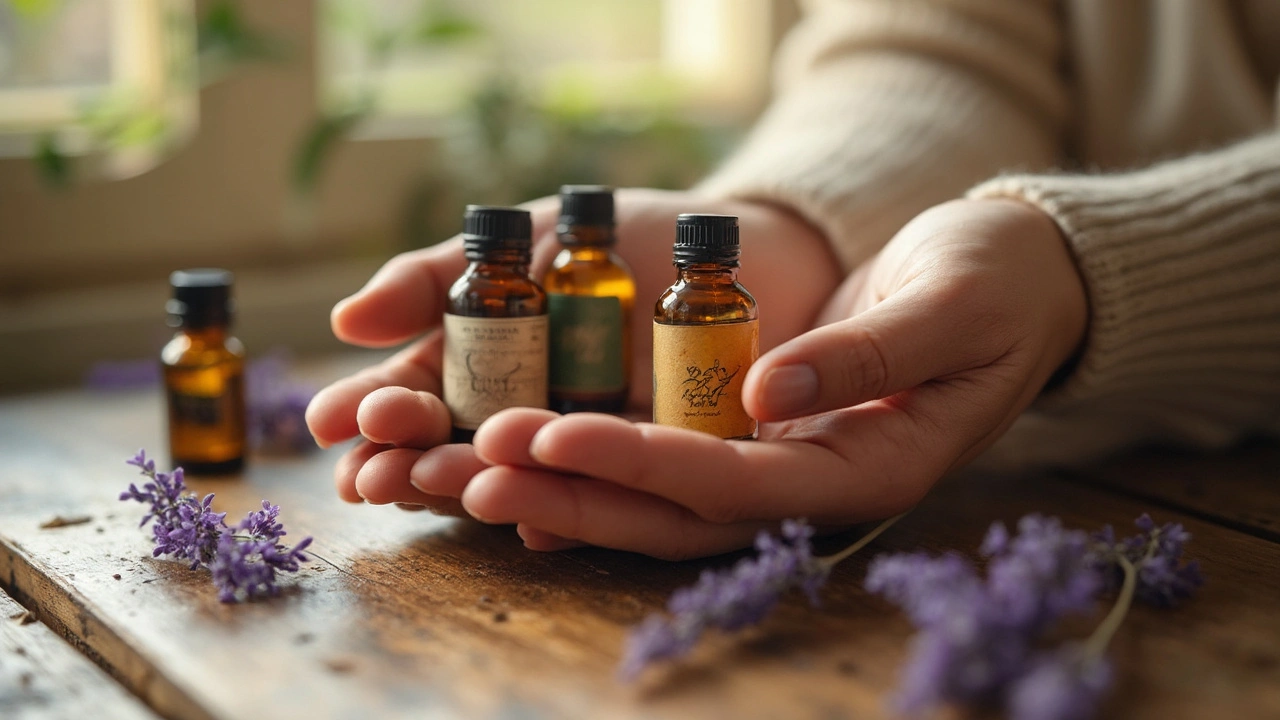Essential oils: practical uses, safety tips, and how to buy quality oils
Did you know a single drop of some essential oils can equal the power of a cup of fresh herb? That’s why people love them — small amount, big effect. But that power also means they need respect. This page gives straight, useful advice on using essential oils safely, choosing good products, and spotting risky combos with medicines.
How people actually use essential oils
Most folks use oils three ways: inhalation, topical application, and sometimes very dilute internal use under medical guidance. Inhalation is simple — add a few drops to a diffuser or inhale from your hands for quick calming or focus. Topical use can work well for skin or muscle support, but always dilute with a carrier oil like jojoba or sweet almond. If someone suggests swallowing oils, ask for clear medical proof and talk to your doctor first. Not all oils are safe to ingest.
If you want a quick starter mix for stress: 3 drops lavender, 2 drops bergamot, 1 drop frankincense in a diffuser. For sore muscles, try 2 drops peppermint and 8 drops carrier oil massaged on the area. Keep blends small and test on a patch of skin for 24 hours to watch for reactions.
Safety, quality, and drug interactions
Quality varies wildly. Look for clear labeling: botanical name (Lavandula angustifolia, not just “lavender”), country of origin, extraction method, and batch number. Avoid oils labeled merely “fragrance” or “blend” without ingredients. Price can be a clue — pure, well-made oils usually cost more because they’re concentrated and take lots of plant material to produce.
Essential oils can interact with medicines. For example, some oils affect how your liver breaks down drugs, and others can increase sensitivity to sunlight (citrus oils). If you take blood thinners, antidepressants, hormone therapy, or chemotherapy, pause and ask your clinician. Pregnant or breastfeeding people should avoid many oils or use only under a provider’s advice.
Never apply undiluted oil to the face, eyes, or broken skin. Keep oils away from pets — cats are especially sensitive to many essential oils. Store bottles in a cool, dark place and keep them out of reach of children.
Want to buy oils online? Pick sellers who show testing results like GC-MS (gas chromatography–mass spectrometry) and clear sourcing info. If a shop won’t share test data, treat that as a red flag. Read real user reviews and avoid miracle claims — oils can help with mood, sleep, and minor skin issues, but they’re not a cure-all.
If you’re curious which oils pair well with your current medications or health issues, ask a pharmacist or a clinician. On our site you’ll find related posts about supplements and drug interactions that can help you make informed choices. Use oils to support daily life, not replace medical care.

The Benefits of Essential Oils for Chapped Skin
Discover how essential oils can be a game-changer for chapped skin. Get insights into the best oils to use, how they work, and tips on application for maximum relief. Learn the science behind these natural wonders and how they nourish and heal damaged skin. If you're tired of dry, cracked patches, these oils might be just what you need.
